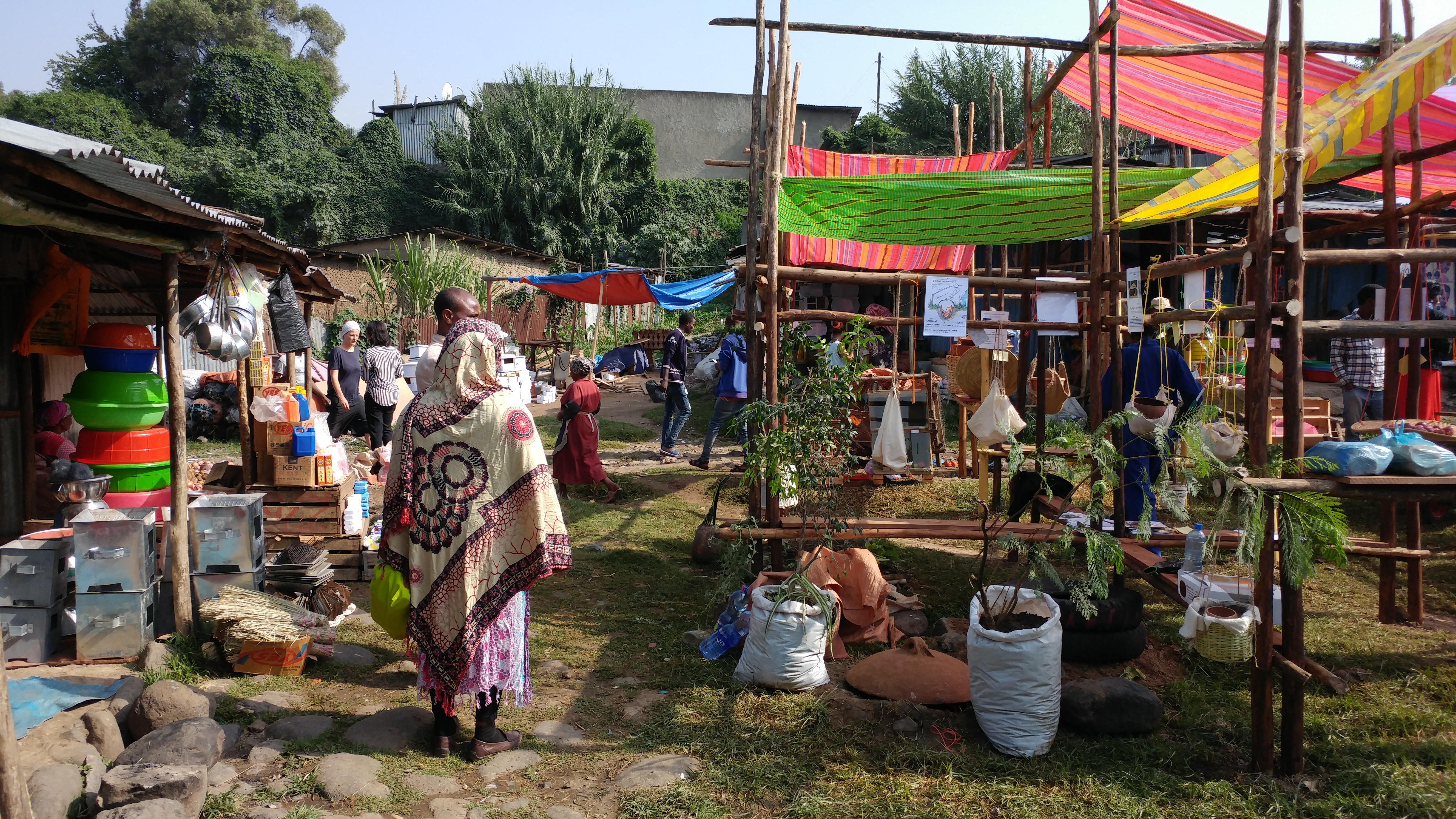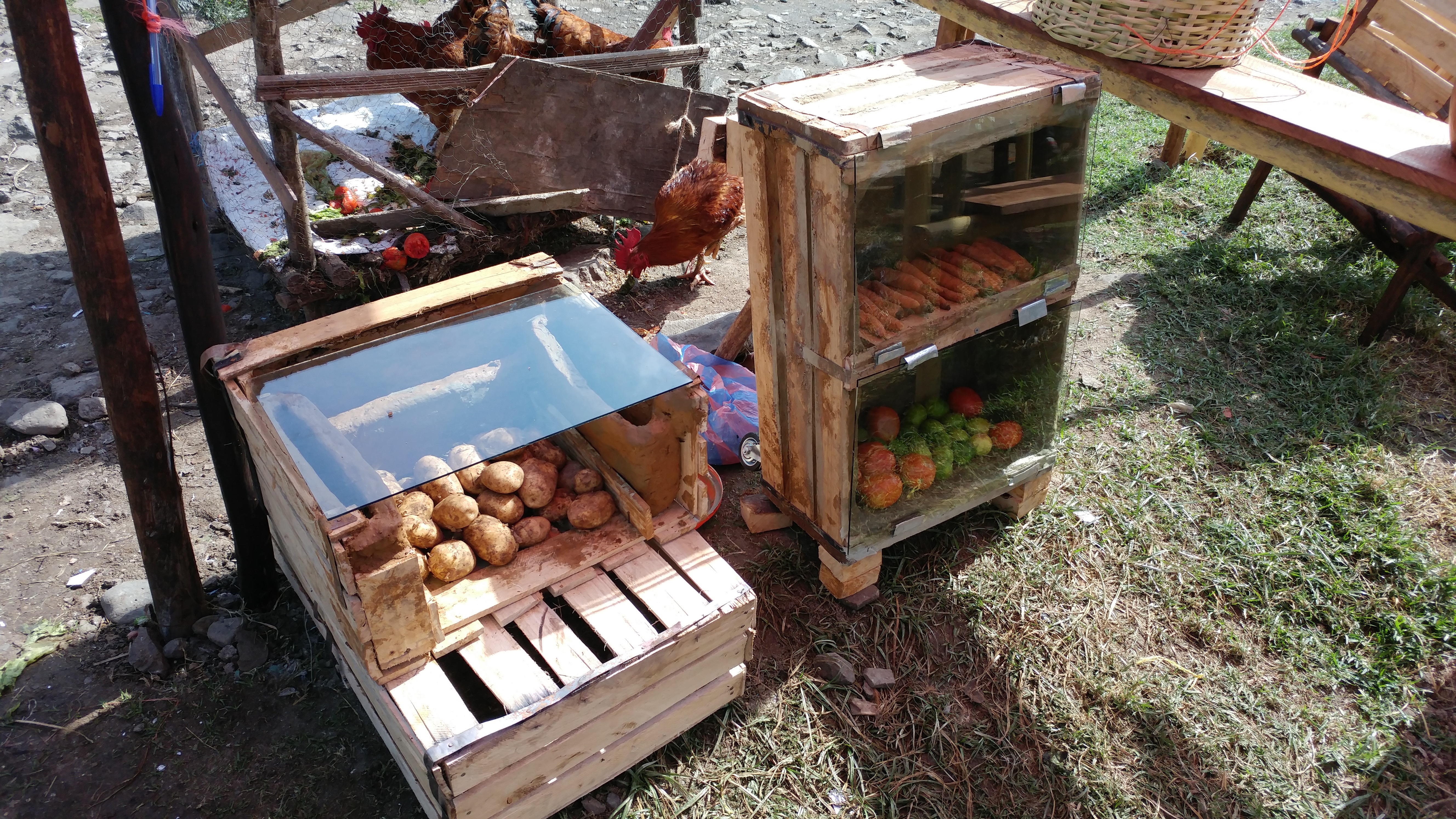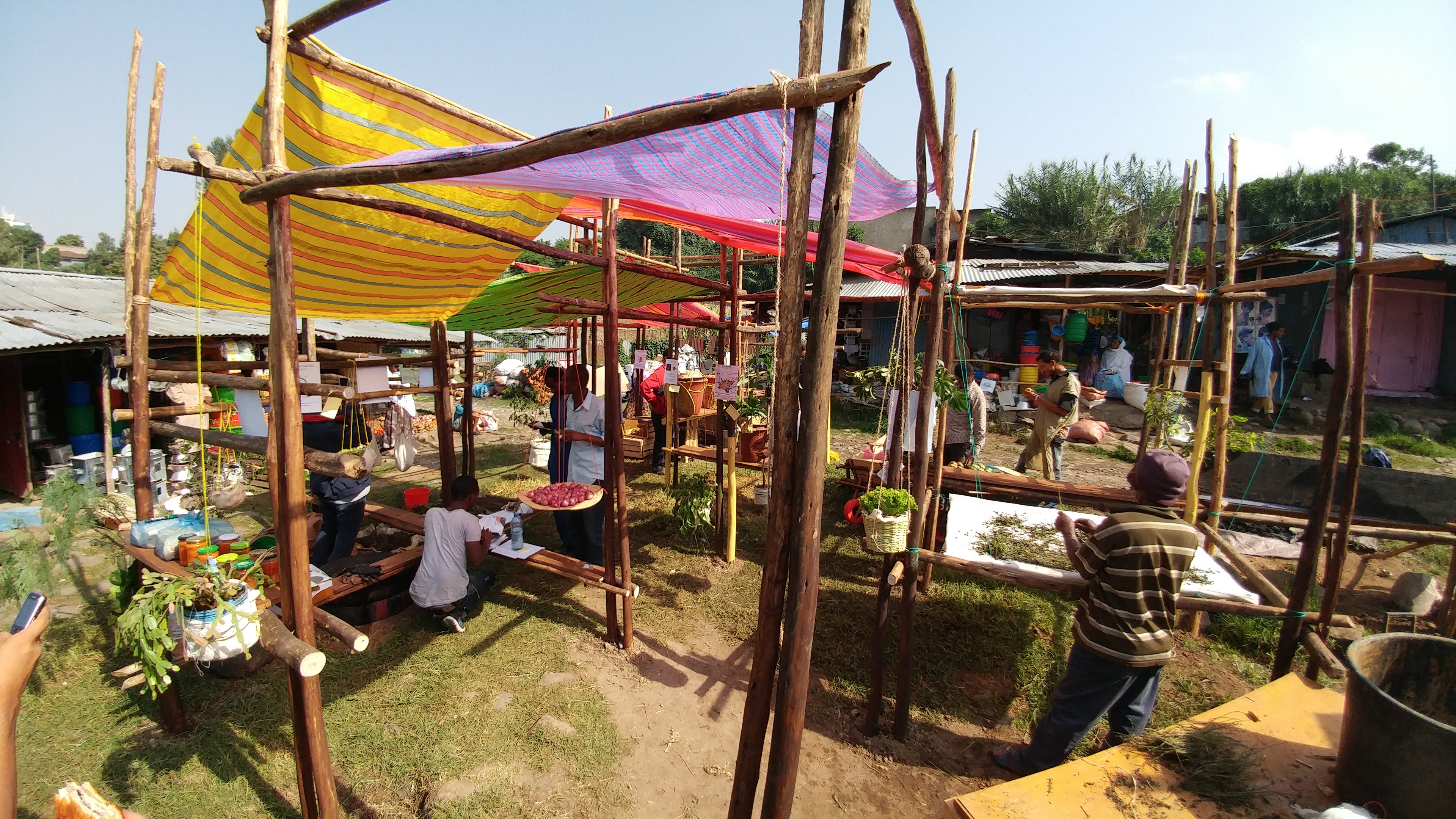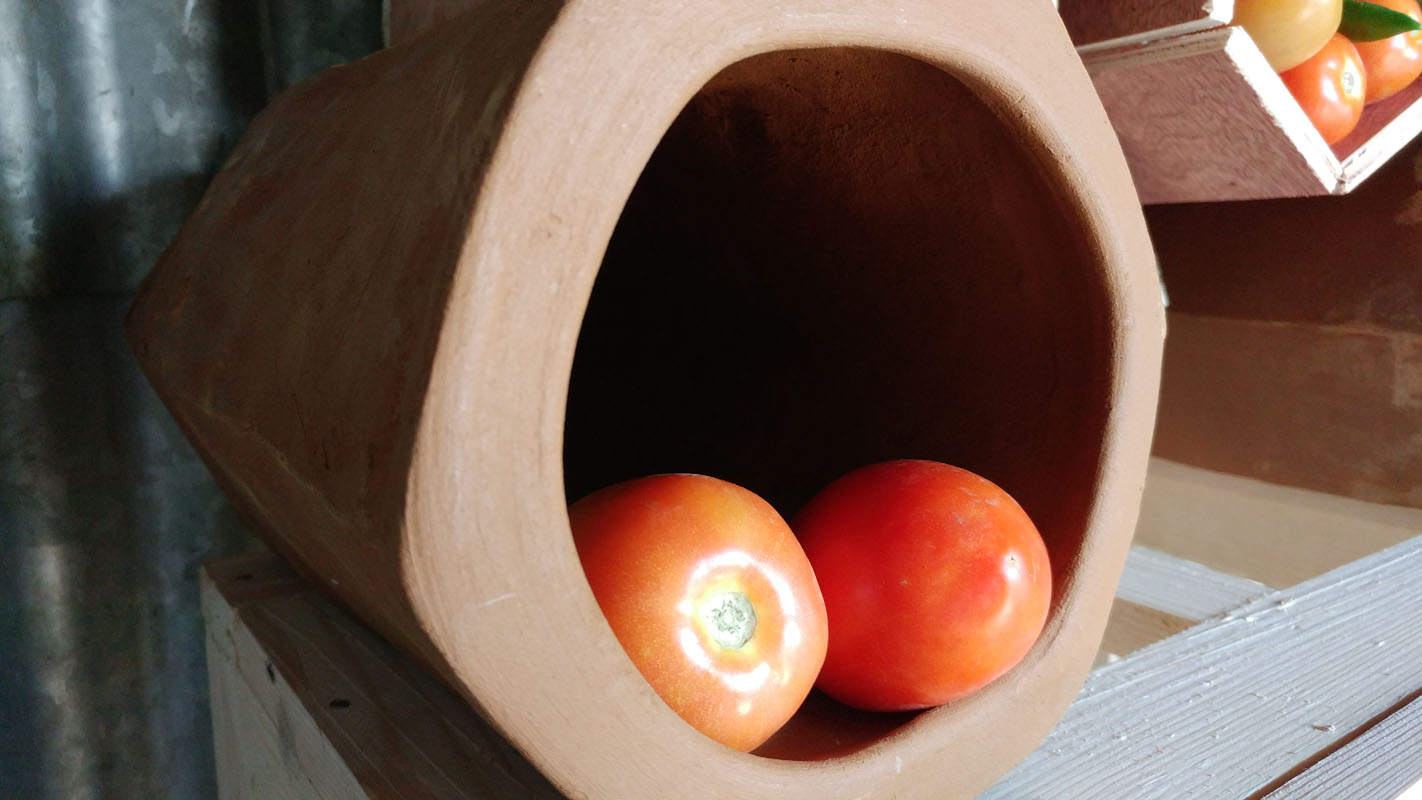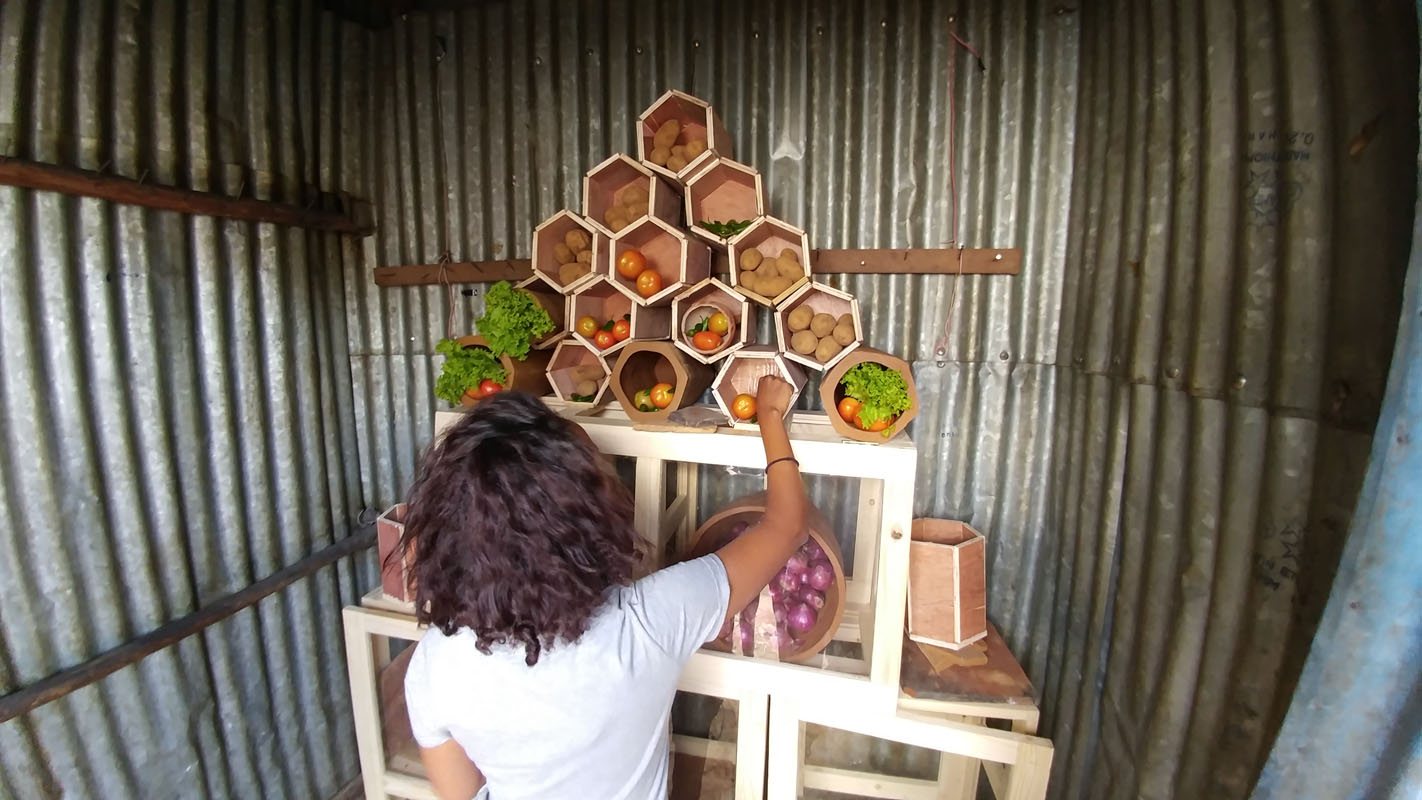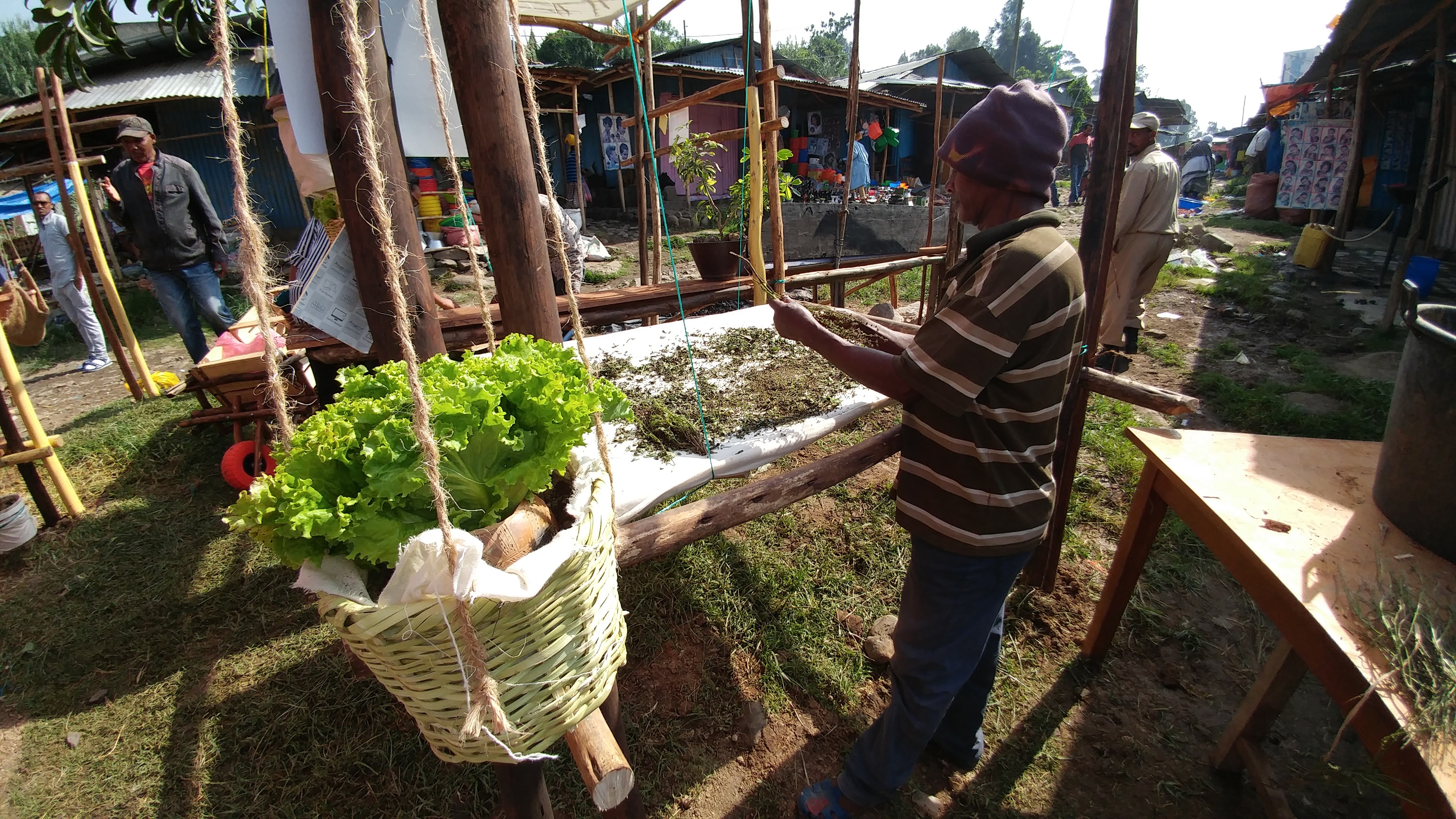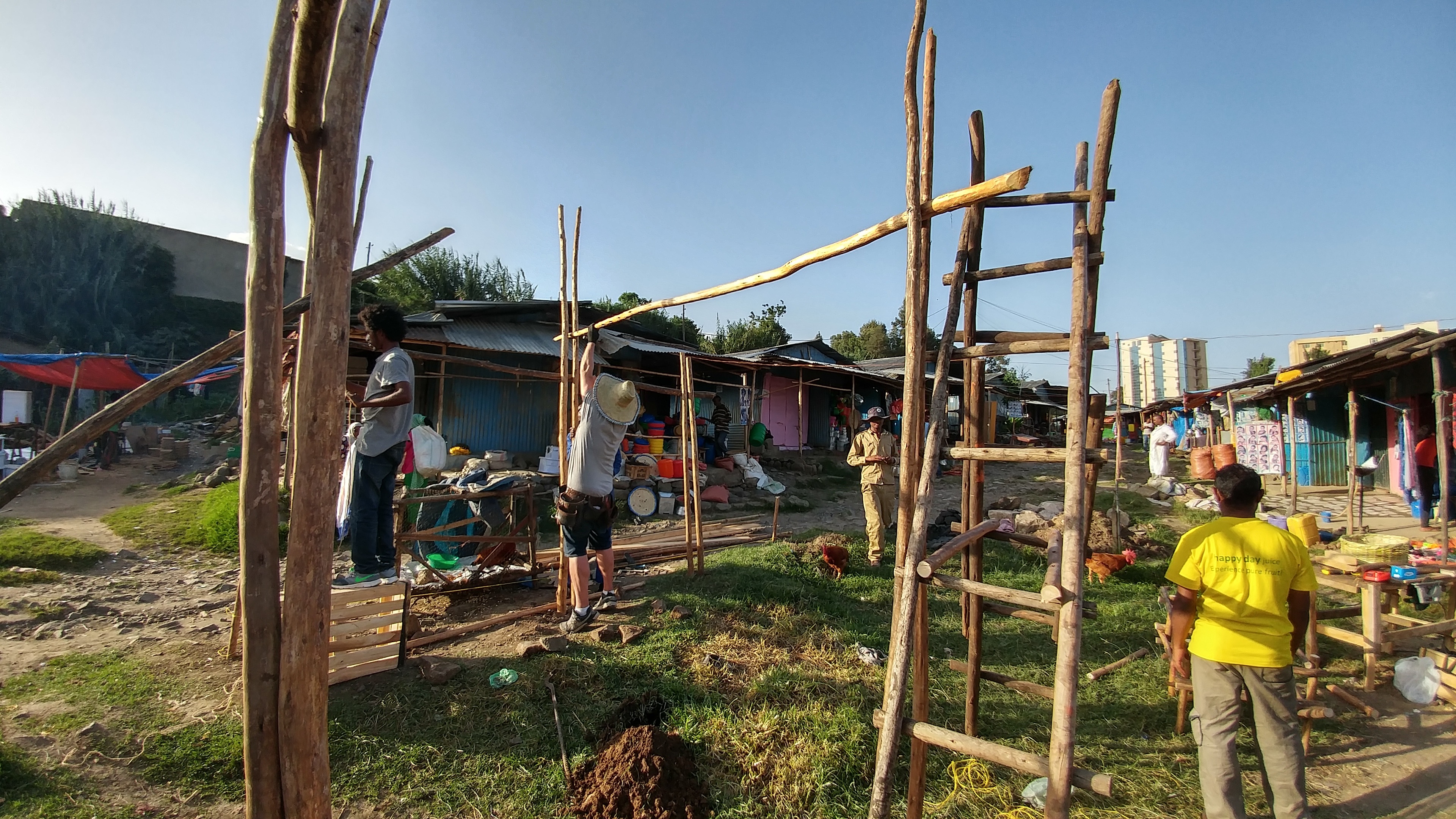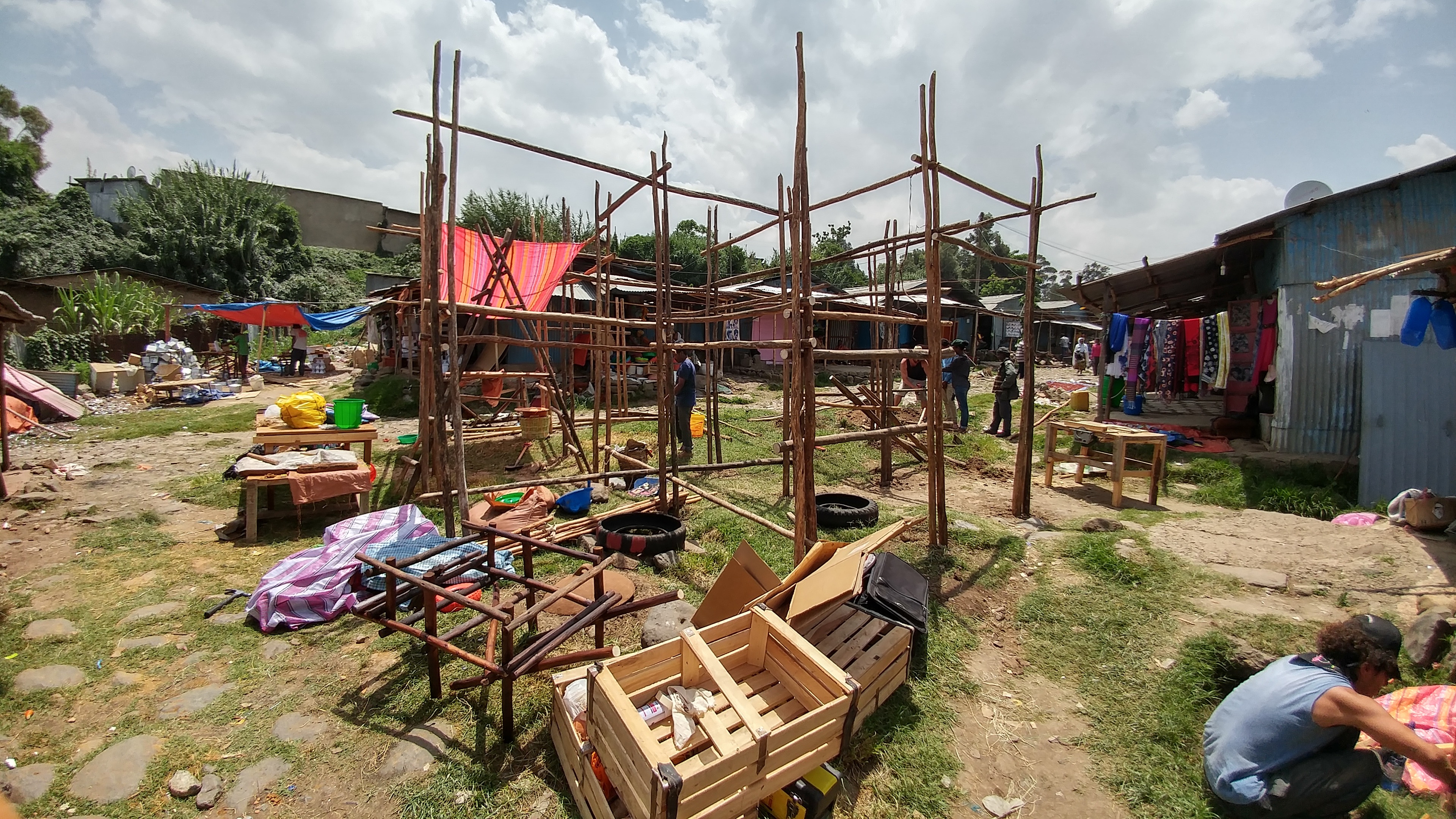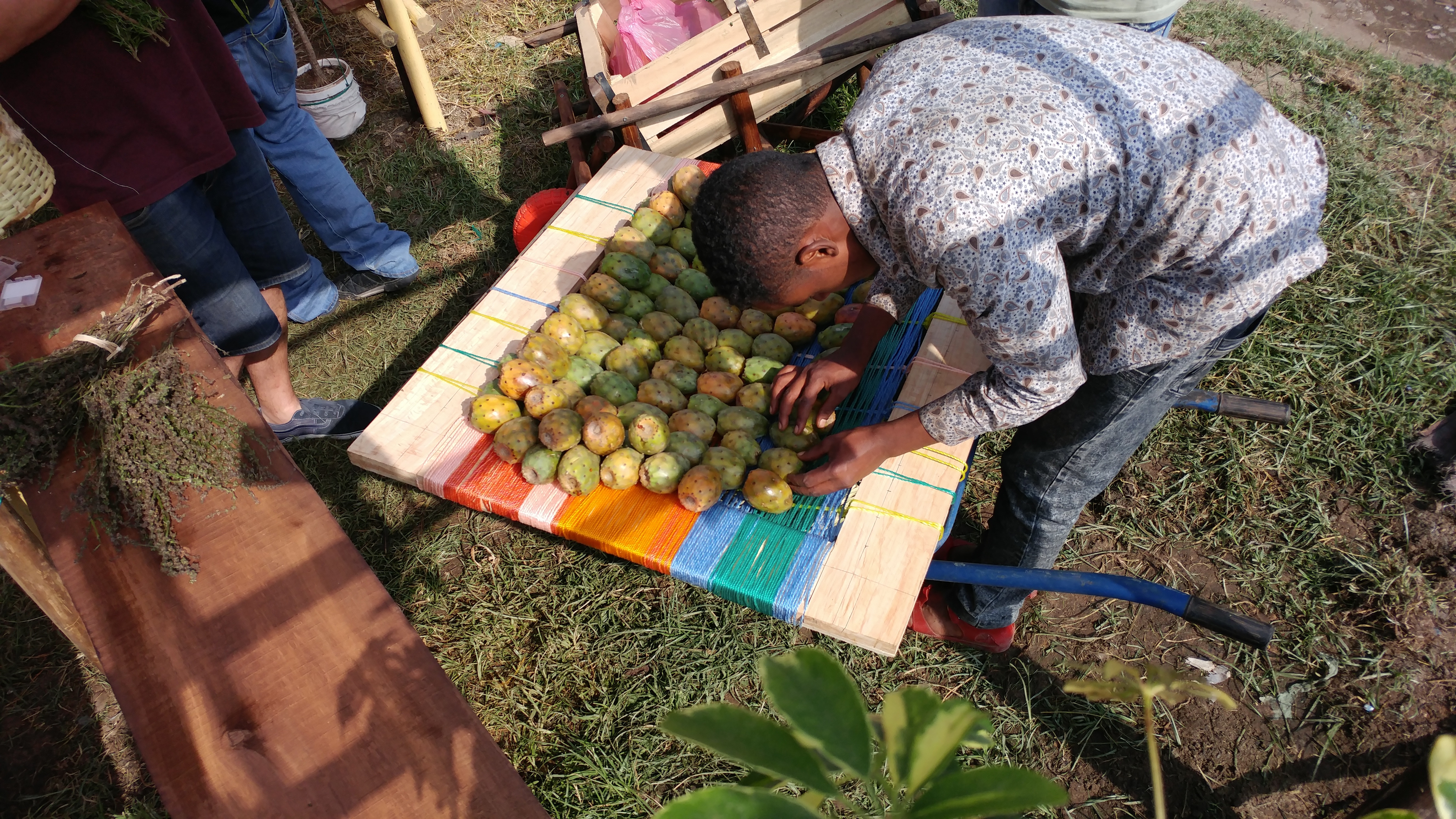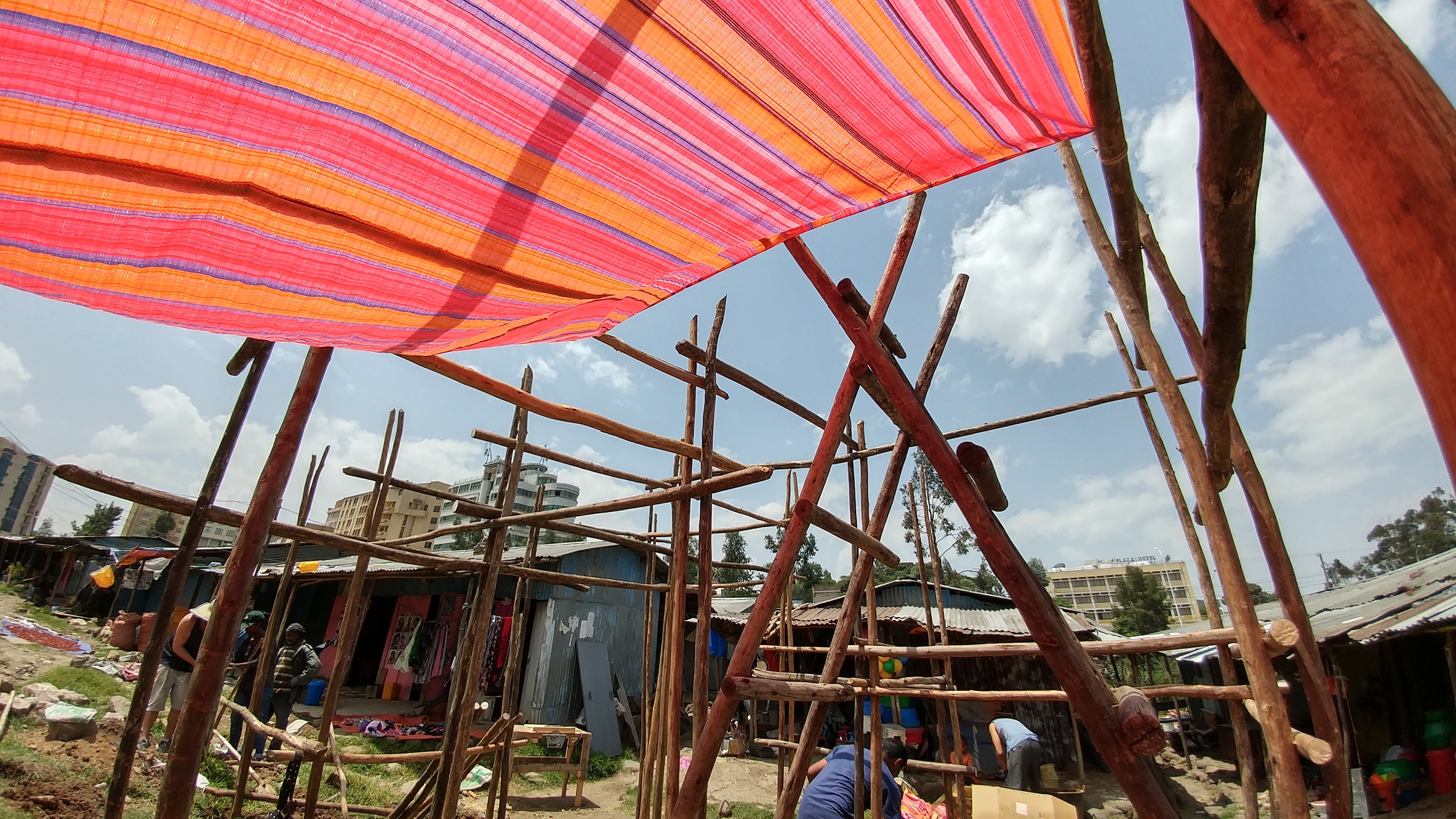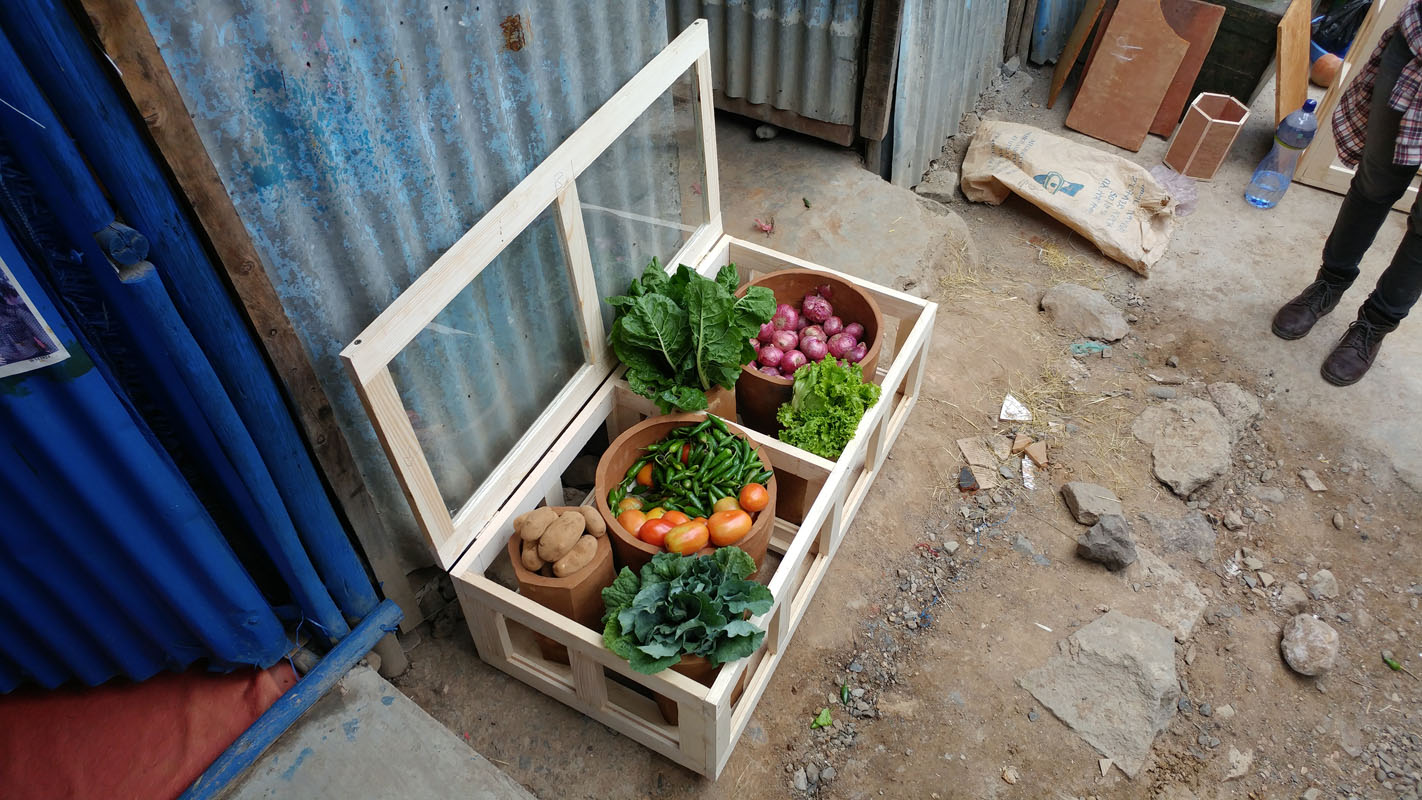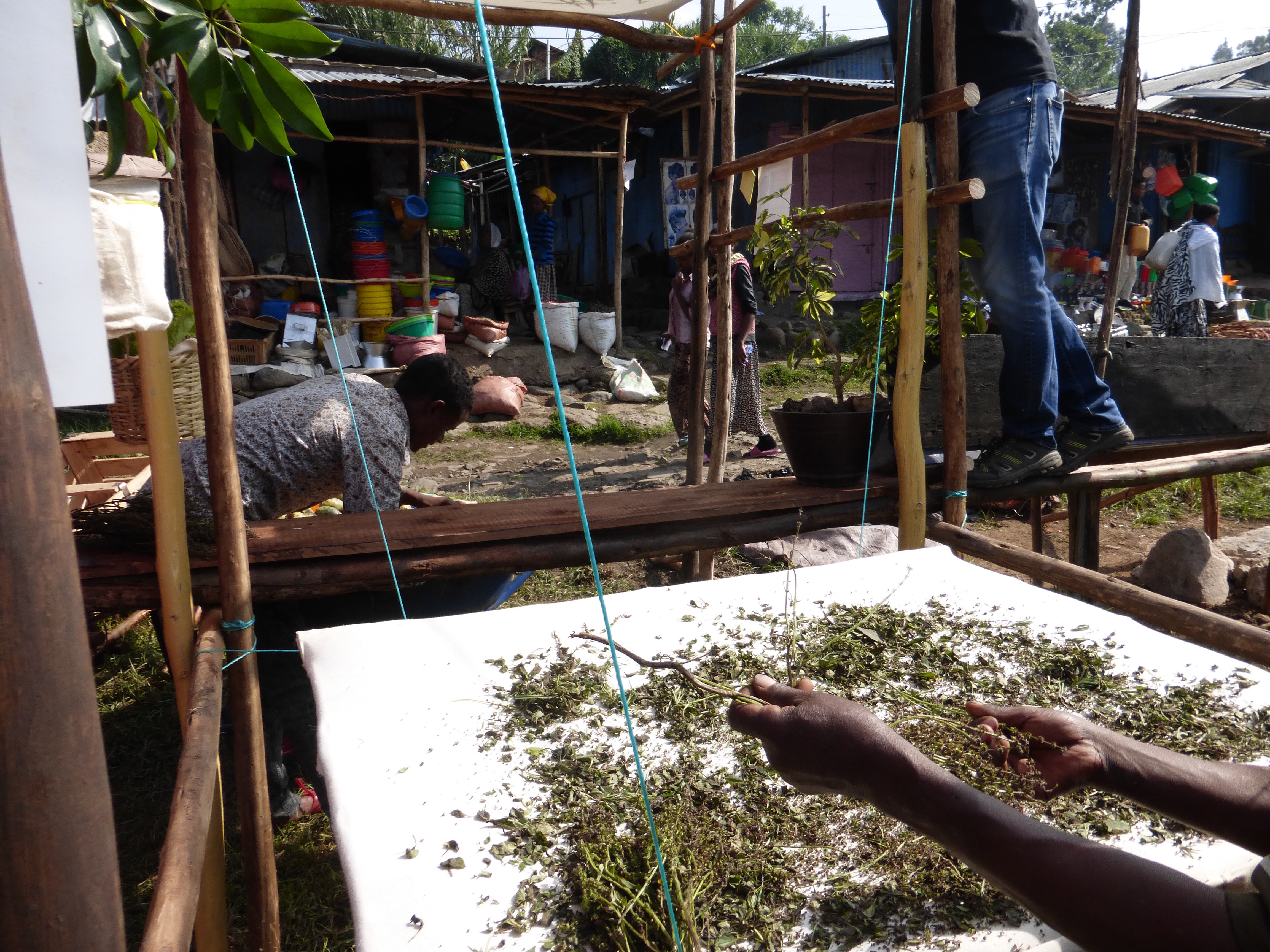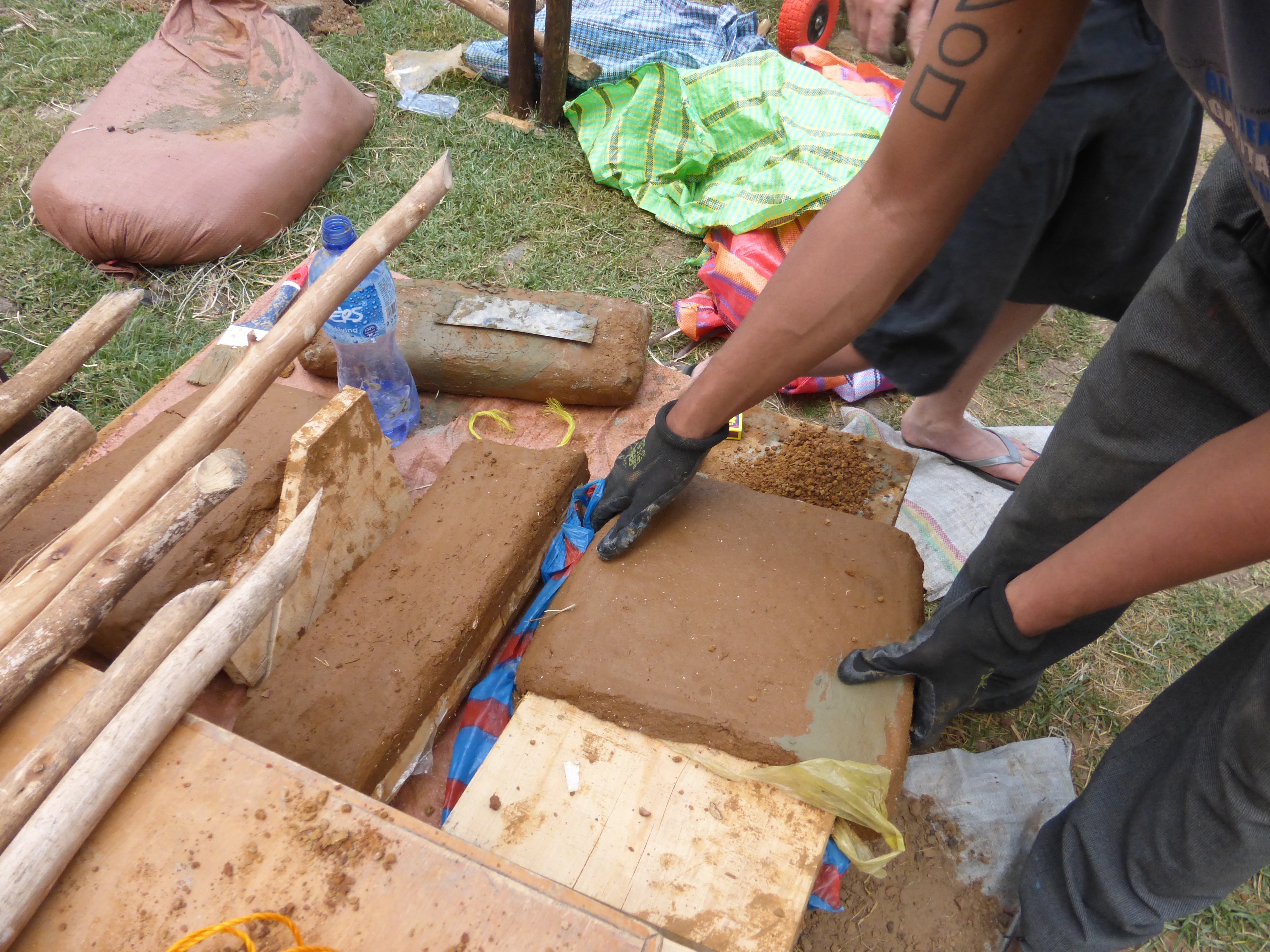![]()
GULIT PROJECT
LOCATION // Agoza + Gerji + Kotebe + Akaki Gulits. Addis Ababa, Ethiopia.
CLIENT // openIDEO
YEAR // 2016
STATUS // Ongoing
PROGRAM // Civic Design
FUNCTION // Food Preservation Devices
Reducing waste and improving profits for vendors
Everyday, vendors in the public community markets of Addis Ababa, known as Gulits, finish their days with leftover produce. In some cases this food is resold the following days, however in most markets it is discarded creating large quantities of food waste and loss of potential profit for vendors as they must restock their produce every morning.
Focusing on the problem of food preservation, the project implemented community food storage facilities that will primarily support small scale urban vendors. The multi-scaled and modular storage units (from zeer-pots to pavilion scaled food drying structures) were designed following the cooling properties of clay-based construction techniques.
This project was a winner of the openIDEO challenge: How might urban slum communities become more resilient to the effects of climate change? The project received project development support and implementation funding from openIDEO and their partners.
The Gulit Project is a research and development initiative focusing on food preservation strategies in the markets of Addis Ababa, Ethiopia. Looking at both physical and social infrastructures to help reduce food waste, the project is structured by layering community participatory design with local craftsmanship to implement clay-based food storage units that support urban vendors across the city. Working side-by-side with local citizens, market vendors and sustainability organizations, our goal is to showcase the role of design in addressing food security, help reduce food waste and create new economic opportunities in how produce is sold across the city.
Addis Ababa is a city lined with markets (known as Gulit in Amharic) in every neighbourhood. Each is unique in scale and physical layout, yet they all share the common characteristic as a place where the cultural, economic and social layers of the surrounding community merge into one. They are dynamic places, always changing and trying to adapt. In order to respond to this context, the project is structured to foster the ongoing exchange of information and participation between market vendors, citizens and local organizations.
www.gulitproject.com
COLLABORATORS
Yabesra Akalu | Melat Assefa | Bezawit Bekele | James Brazil | Desalegn Firew | Rafael Machado | Julia Mauser | Mezgebu Tigabu | Nicholas Waissbluth
